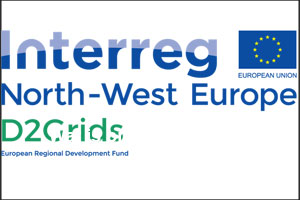The total project budget is 20.8 million Euro of which 11.6 million Euro is covered by Interreg funds. The OU participates for €400,000 in the project, of which €240,000 is covered by Interreg. The project duration is 3 years. The research project fits perfectly within the years of cooperation between the OU and Mijnwater BV.
What is 5GDHC?
Unlike conventional district heating, the thermal smart grid is based on low temperatures. A cluster of decentralised heat pumps, close to the end user location, exchanges heat and cold on the grid and stores temporary surpluses of heat and cold until there is a demand for them. The 5GDHC concept makes it possible, for example, to make large-scale use of low-temperature residual heat from data centres, supermarkets and industry. The aim is to connect approximately 50,000 m2 of homes and/or commercial buildings to a 5GDHC network at the five partner pilot locations.
Contribution from the Open University
The OU coordinates the design of a joint transnational deployment strategy. This defines ambitions and important steps for the sustainability and scaling-up of pilot investments, for the roll-out to new areas and for the involvement of important target groups.
In order to make a broad range and knowledge sharing possible, the Science department develops tailor-made training packages for the sector, professionals and policymakers.
In addition, employees of the department contribute to the assessment of the environmental impact of the implementation of 5GDHC networks.
Dr. Wilfried Ivens is project leader of the Long Term work package within D2GRIDS within the Department of Science. Furthermore, Prof. Dr. Stefan Dekker and PhD candidate Stef Boesten make content contributions to the project.
Want to know more about D2Grids?
Then consult the project website of D2GRIDS.




